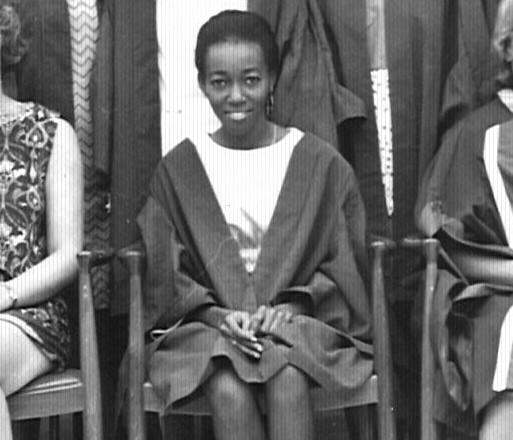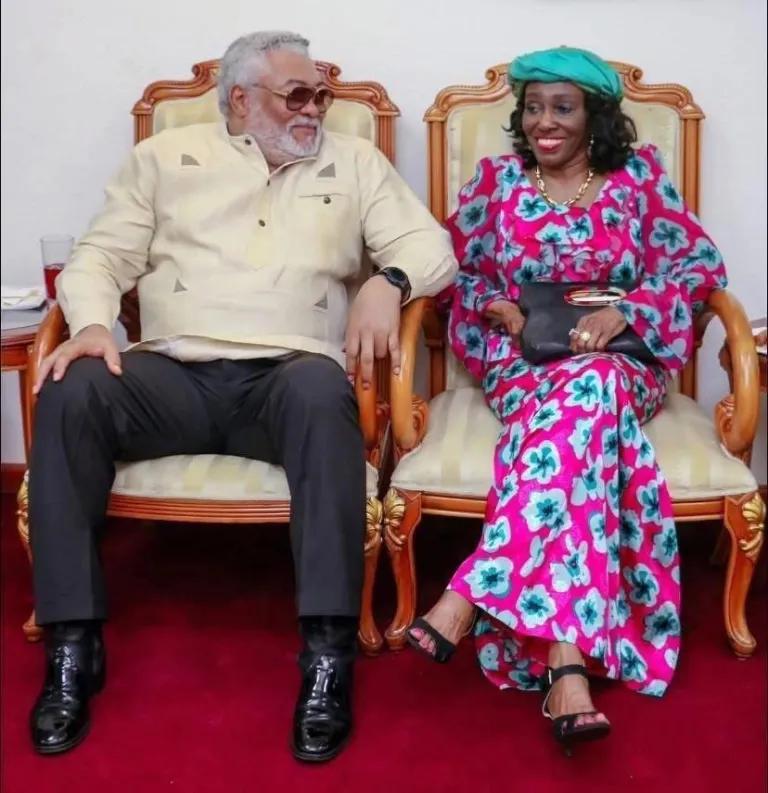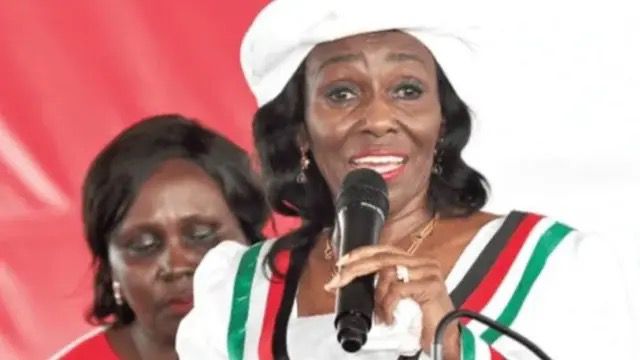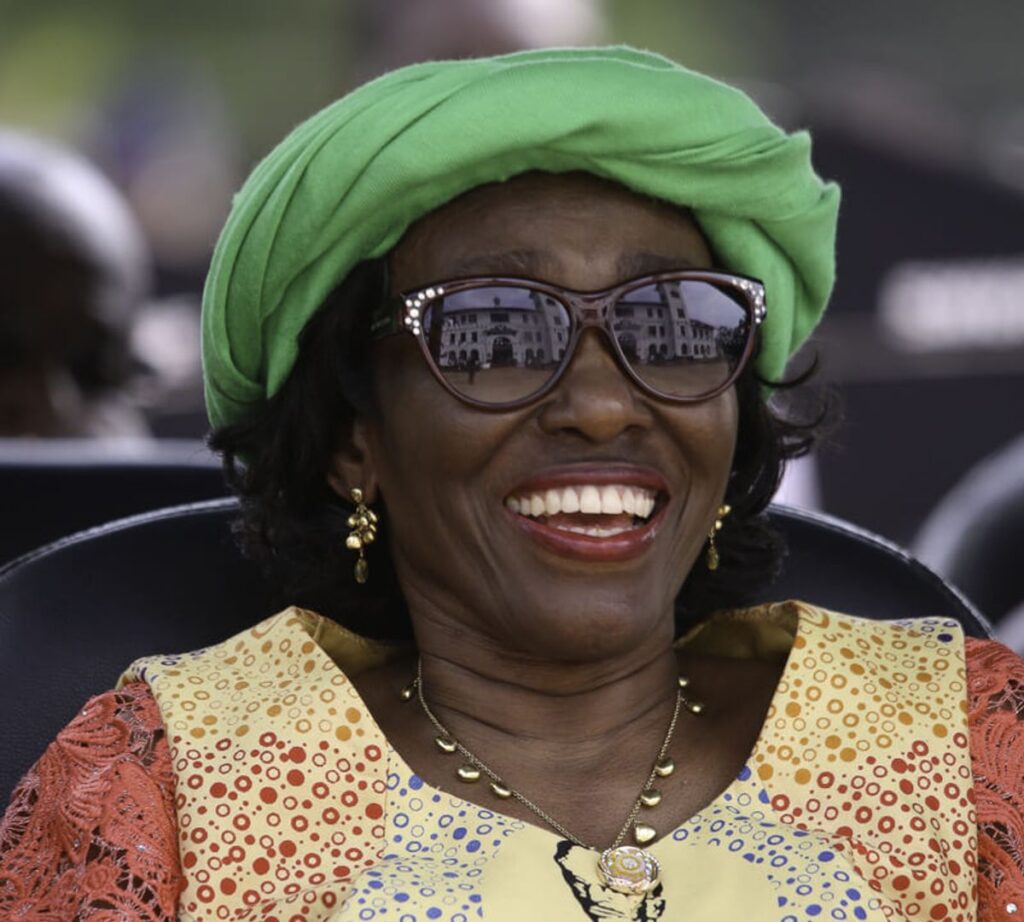Table of Contents
Nana Konadu Agyeman-Rawlings: Trailblazer Who Redefined Women’s Leadership in Ghana
The death of Nana Konadu Agyeman-Rawlings on Thursday, October 23, 2025, marks the close of a defining chapter in Ghana’s political and social history. Known for her resolve, intellect, and outspoken advocacy, the former First Lady reshaped how Ghana viewed women in leadership and public life.
Her passing comes at a time when gender equality and political representation remain pressing issues across Africa, making her life and legacy especially significant for a continent still navigating its balance between tradition and progress.
Early Life and Education

Born on November 17, 1948, in Cape Coast, Nana Konadu Agyeman grew up during a period of national transformation. She attended Achimota School, where she met her future husband, Flight Lieutenant Jerry John Rawlings. She later pursued a degree in Art and Textiles at the Kwame Nkrumah University of Science and Technology (KNUST), before continuing her studies in Interior Design at the London College of Arts in 1975.
Her academic journey did not end there. She later enrolled at the Ghana Institute of Management and Public Administration (GIMPA), earning certificates in Advanced Personnel Management and Development Studies — qualifications that reflected her lifelong interest in leadership and social reform.
Ghana’s Longest-Serving First Lady

Following her marriage in 1977, Nana Konadu’s life became deeply intertwined with Ghana’s turbulent political evolution. She served as First Lady briefly in 1979 during the Armed Forces Revolutionary Council (AFRC) period, and again from 1981 to 2001 — covering both the Provisional National Defence Council (PNDC) and the early Fourth Republic.
Her 20-year tenure remains the longest in Ghana’s history, offering her a powerful platform to influence national policies, especially those affecting women and children.
Champion of Women’s Empowerment
In 1982, she founded the 31st December Women’s Movement (31st DWM) — an initiative that evolved from a grassroots mobilisation effort into one of Ghana’s most influential social movements. Under her leadership, the organisation empowered over two million women nationwide, promoting literacy, childcare, and entrepreneurship.
The 31st DWM established hundreds of preschools, enabling women to engage in income-generating activities, and introduced adult education and community health programmes focused on nutrition and sanitation.
Among her most enduring achievements was her role in advocating for the Intestate Succession Law (PNDCL 111), which significantly advanced inheritance rights for women and children. She also contributed to Ghana becoming the first country in the world to ratify the UN Convention on the Rights of the Child in 1991 — a landmark in global child protection efforts.
In reflecting on her movement’s success, Nana Konadu once remarked that women had gained “the confidence and voice to participate fully in the decisions that shape their lives.”
Political Courage and Independent Spirit

Nana Konadu’s political influence extended well beyond her years as First Lady. A founding member of the National Democratic Congress (NDC), she served as the party’s First Vice Chairperson in 2009. In a bold and unprecedented move, she contested the party’s presidential primaries in 2011 against the late President John Atta Mills — an act that tested the boundaries of internal party democracy.
Unshaken by defeat, she went on to form the National Democratic Party (NDP) and contested the 2016 presidential election, becoming Ghana’s first female presidential candidate. Though she secured only a small fraction of the vote, her candidacy was historic, inspiring many Ghanaian women to pursue leadership roles in politics and business.
Her assertive leadership style, often described as “uncompromising,” earned both admiration and criticism. Yet, it cemented her reputation as one of the most resilient figures in Ghana’s modern political history.
Legacy of a Visionary Leader

Nana Konadu Agyeman-Rawlings’s life was marked by a consistent drive to elevate women’s participation in governance and social development. Her initiatives helped reshape gender discourse in Ghana, creating pathways for women in public service, education, and entrepreneurship.
Today, Ghanaian women continue to build upon the foundations she laid — from increased female representation in parliament to growing participation in local governance and private enterprise.
Her passing closes a chapter, but her influence endures. Nana Konadu will be remembered not just as the wife of a revolutionary leader, but as a pioneer who challenged societal norms, expanded opportunities for women, and redefined what it meant to lead in Ghana.
Read also: One Dead, Four Injured in Odwira Festival Shooting — Police Launch Full-Scale Investigation

